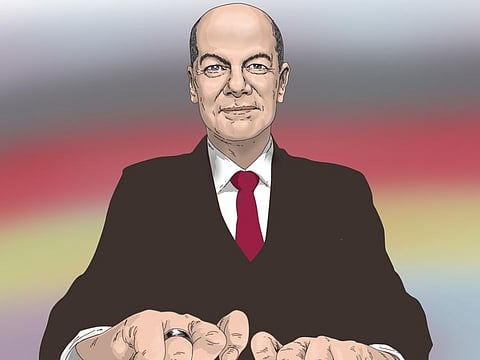In Germany, Scholz takes the helm
Coalition deal in Berlin marks the end of Merkel era

For almost two decades, Angela Merkel has been at the centre of Germany politics and has provided a level of leadership on the European and world stages with stability and a measured hand that so defined her nation’s and the European Union’s diplomatic touches and nuances.
Since September, with the federal election. Merkel had been filling the chancellor’s role in a caretaking capacity. Now, with a formal deal ratified in a so-called “traffic light” coalition between Socials, Liberals and the Greens, her tenure in politics ends and she can finally enjoy a long-anticipated retirement.
So, what now for Germany and Europe as 2021 draws to a close and much of the continent is now facing a fourth wave of coronavirus, the global economy is entering a period of inflation and there are tensions to the immediate east of the EU’s frontier with Belarus.
It has taken slightly more than two months for the Social Democrats under former finance minister Olaf Scholz to reach a deal with the Greens and the liberal Freedom Party.
To outsiders, taking two months to reach a coalition deal may seem like a long time and perhaps hint of deep divisions, the reality is that in German terms, the deal was concluded pretty swiftly, and the parties were quick to agree to a domestic agenda that will hasten the nation’s path to carbon neutrality and ease the tax burden on millions of lower-paid workers.
If anything, having a new government in place under the experienced hand of Scholz should provide reassurance to Germany and other EU members that continuity and stability are secured following Merkel’s departure.
With coronavirus and the unvaccinated placing a huge strain on the German health system and with tensions running high on the border between Poland and Belarus, the pressures on the national economy from global events is also a worry.
This new era for Germany should look much like the stability provided by Merkel, the longest-serving chancellor since the early 1870s. Throughout, her measured and patient approach has won holdouts and critics over, and her presence at global summits or when key international issues arise will be sorely missed.
While retirement is now her choice, there seems every likelihood that her counsel and wisdom will be but a phone call away — and that is a good thing. Any job on global significance is hers should she so wish. Scholz should have her number on the speed dial.



